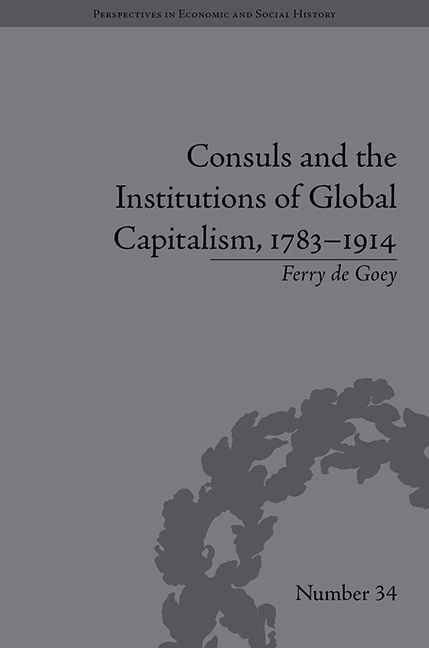Conclusions
Summary
This study examined the history of consuls in different areas during the nineteenth century to answer the following questions: how did the consular services of Western states change in this period? What role did the consuls play in the development of international relations? How did the consuls cope with the different environments and systems of international relations? And, finally: did the institution of consuls contribute to the globalization of capitalism between c. 1783 and 1914?
During the long nineteenth century the number of consuls increased quickly to offer protection to their merchants. The main reasons for the growth in the number of consuls are the opening of new markets in the Middle East, East Asia and Africa; the growth in the number of recognized states after the decolonization of the Americas; the acceptance of foreign consuls in Western colonies; and the rivalry between Western states. States with a long consular tradition, like Great Britain and the Netherlands, were able to expand their network of consular posts existing before the Napoleonic Wars. New states, like the United States, had to start from scratch. Despite the rhetoric of isolationism, the US concluded commercial treaties and established a consular service. Small states, in particular, appointed many consuls. This was the case in the Netherlands and the German states before their unification in the German Empire.
Compared to resident ambassadors, consuls were much cheaper. This additionally explains why their numbers grew, because most governments were forced to economize on their budget.
- Type
- Chapter
- Information
- Consuls and the Institutions of Global Capitalism, 1783–1914 , pp. 141 - 148Publisher: Pickering & ChattoFirst published in: 2014

